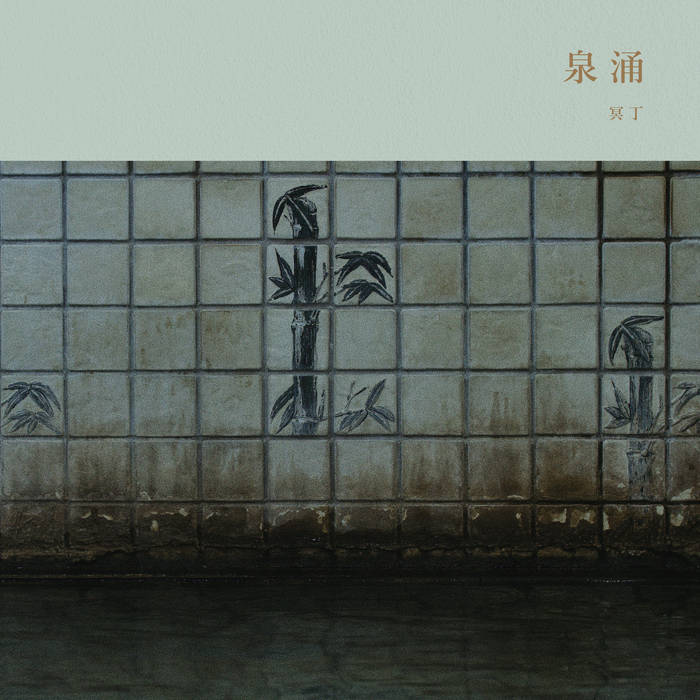In the liner notes for his seminal album Music For Airports, Brian Eno wrote that ambient music “must be as ignorable as it is interesting.” Before him, French composer Erik Satie, whose musique d’ameublement (‘furniture music’) prefigured ambient, reportedly used to get angry if his compositions drew too much attention. Ambient music, then, has long occupied a strange space. It should reward deep listening without demanding it; operate with presence, but not insistence.
This is a paradox that sits at the heart of Sen’nyū, the latest effort from Japanese ambient bodach Meitei. Inspired by Japanese onsen culture, it’s an album with place as its central tenet. And it’s best enjoyed in the bath.
The record, released on Singapore’s Kitchen Label, is part of a wider set of works from Meitei that chronicle “Lost Japan” (or Shitsu-nihon). For Sen’nyū, Meitei exiled himself to a warehouse just outside Beppu, a city in Kyushu known for its status as a popular onsen resort. There, invited to make music for Beppu’s 100th anniversary, and equipped with nothing but a microphone, Meitei got lost in onsen landmarks for days on end, intensely listening to the sounds of steam, sedimentary rock and public baths. The experience makes for an album that comes alive like molecules changing state from water to steam.
A large part of the Shitsu-nihon concept, and Sen’nyū in particular, is the incorporation of field recordings into tracks. These snippets of onsen culture – trickling water taps, whistling tree branches, spectral gongs – are what allow Meitei to quietly fold his listener into the ambience. The album’s opener, named after the Ichinoyu Onsen, is peppered with audiological onsen symbols, which sound against flutes, drones and metallic objects. It all congeals into an ASMR-like, watery body: unceasingly relaxing, but numinous and vivid enough to claw an ounce of sentience out of you. Right when it feels like you want nothing more but to sink into the unhurried three-note progressions, the transitory open chords and the bath, Meitei will introduce the perfect misshapen lead for the moment, a windswept field recording – or, oftentimes, rescind into complete, all-encompassing soundscape.
Sen’nyū’s efficacy also lies in its ability to rise out of the onsen baths and into the cold air of hauntological Japan. The work, in all its murmurous, moth-eaten glory, serves as a constant reminder of the power music can hold in allowing its listeners to contextualise and make sense of the spaces around them – not only as a preservation tool for a singular, deeply meaningful practice like onsen, but also a means to piece together a fractured cultural memory through art, thought, and close collaboration between place, person and sound.
In its own quiet way, Sen’nyū asks us to remain awake to the textures of our surroundings – to listen to everything, all the time. And, when we catch ourselves drifting, to gently return.


